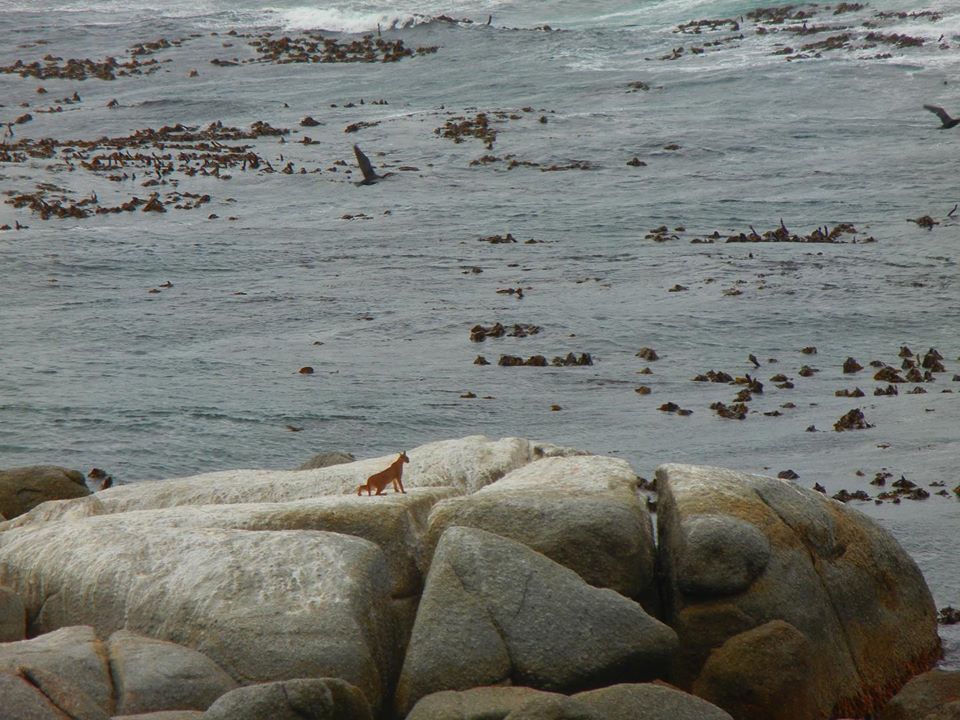Recently, there have been quite a few caracal sightings, with one being caught on video just yesterday. Today [May 1], The Urban Caracal Project gave us some insight into the animals’ eating habits.
The group posted a picture (taken in 2016) to their Facebook page, of a caracal hunting in Cape Point. The post stated that the caracal in question was searching for cormorants. In the post, the group said that they are now looking at how caracals decide where to move and find food.
“These might seem like basic questions but can be quite tricky to answer,” they said. “Two important factors influencing where wild animals go to eat include where the food is (like this Cape Cormorant colony), and importantly, how risky it is to get that food. ”
Urban areas and their surrounds are obviously dangerous for these animals due to roads and cars, poachers and other such things.
“Unexpectedly, Cape Point caracals are teaching us a lot about how caracals make decisions when they have the option to avoid these risks! Clumsy cormorants are easy prey for caracals and so not surprisingly, caracals in the southern Peninsula are choosing to spend a lot of time hunting prey in Cape Point away from urban areas!”
While these caracals have access to cormorants, others don’t have it that easy. Caracals in the northern sections of the Table Mountain National Park often cannot avoid being faced with risks (crossing roads, coming face to face with people etc.), as a result of the fragmented landscape. The Urban Caracal Project has found that these caracals, unexpectedly, decide to hunt in close proximity to urban life.
“The reason is that there is likely that they become habituated as young caracals to dealing with risky environments where there are tons of people, cars, and roads, and learn that there is a lot of easy prey close to urban areas – such as abundant Guinea fowl and Egyptian geese,” they said.
The Urban Caracal Project are currently analysing their data, and say that they are coming up with some interesting results.
Also read: Caracal kittens spotted waiting for mom
Picture: Facebook / Urban Caracal Project, Cape Town, South Africa

